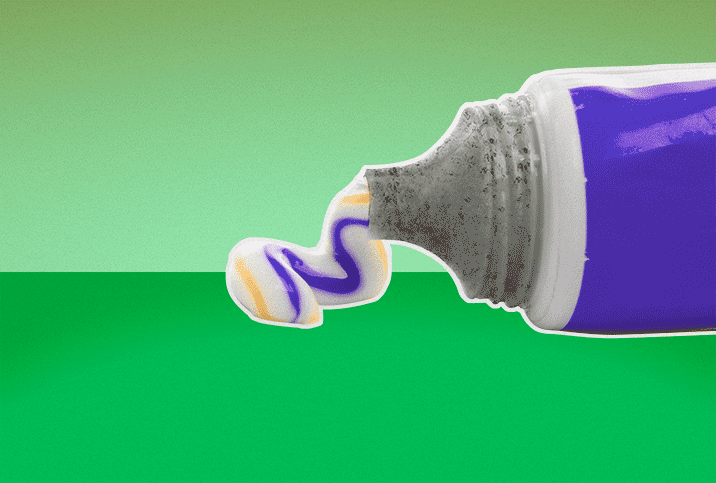Can Women Get Smegma?

If you've played the popular card game Cards Against Humanity, you've likely heard of smegma—but you may not know the details. While more frequently associated with penises, female smegma is just as common, just as normal and just as important to clean as male smegma.
Married couple and urogynecologists David Kimble, M.D., and Alexis May Kimble, M.D., explained that smegma isn't particular to a single sex. The vast majority of its ingredients are produced by all human bodies regardless of genital type.
So, what is vaginal smegma exactly?
"Smegma is usually composed of a collection of oil from the normal sebaceous glands of the vulva along with vaginal exudate, skin cells that have sloughed off and debris," the Kimbles said. "The only ingredient that is unique to females is the vaginal exudate. Smegma is always...in the folds of the vulva."
As opposed to vaginal discharge, which is a product of the vagina, smegma accumulates on the vulva (the exterior genital area). "Vaginal exudate may include discharge but is not limited to discharge," said urogynecologist Michael Tahery, M.D.
"Vaginal exudate is normal," Tahery continued. "Let's say a person gets excited and the vaginal area becomes engorged. All these blood vessels become all full of blood and that liquid...is actually the tissue that comes from these blood vessels."
"That exudate serves to lubricate," Tahery said. "It's part of the normal physiological process of the vaginal environment."
How do I clean vaginal smegma?
Regardless of its components, the most pressing information for vulva owners is how to clean smegma in vaginas. The Kimbles laid out the basics.
"Using a gentle cleanser to the vulva is all that is necessary," they stated. "The focus should be on the clitoral area and the labia minora and majora. This is where smegma accumulates. Avoid any chemicals that are known to be caustic to the delicate skin of the vulva, such as acidic products, alcohol in any form or harsh soaps."
Taking that extra minute to check your vulva, including the labia majora and minora and the clitoris, is easily integrated into regular showering. Smegma isn't a problem in and of itself—the issue arises when smegma isn't properly cleaned.
"The time it takes to harden smegma is different for most women due to differences in body size, labial size, hormone status, sebaceous gland activity and hygiene habits," the Kimbles explained. "However, it usually requires a few days to fully harden. It is much more challenging to cleanse and remove hardened smegma. It may even require treatment similar to exfoliation."
Sex toys collect smegma, too
It's not just our vulva we're charged with keeping hygienic—any penetrative object will collect smegma. Smegma is most obviously visible on silicone toys and dries into whitish flakes.
"Smegma can accumulate on virtually any inanimate object since it is a collection of nonliving substances," the Kimbles stated. "Warm soap and water will usually do the trick, but also hydrogen peroxide in a dilute solution or even rubbing alcohol."
While rubbing alcohol or any caustic chemical should never be used to clean your genitals, it is permissible on inanimate objects, so long as the disinfectant is wiped off fairly quickly after application and followed with a thorough rinse. Dilution of chemicals is also recommended, whether for those with particularly sensitive skin or if this is the first time you've cleaned your toy with these specific chemicals.
Is smegma normal?
Tahery said smegma isn't infectious or a sign of a problem on its own. That said, excessive smegma production can correlate to various health conditions.
"Smegma itself is not an infectious process, so it shouldn't contribute to infections or anything else," Tahery said. Though smegma is not a cause for concern, excessive smegma alongside other symptoms, such as inflammation or pain, can be, according to the Kimbles. Excessive smegma is more likely to occur in people who are immunosuppressed, have poorly controlled diabetes and those with oily skin types, they explained.
If you are having trouble keeping your vulvar area free of smegma buildup with the cleansing steps outlined above, then evaluation by a trained gynecologist is needed to rule out a true infection, the Kimbles advised.


















